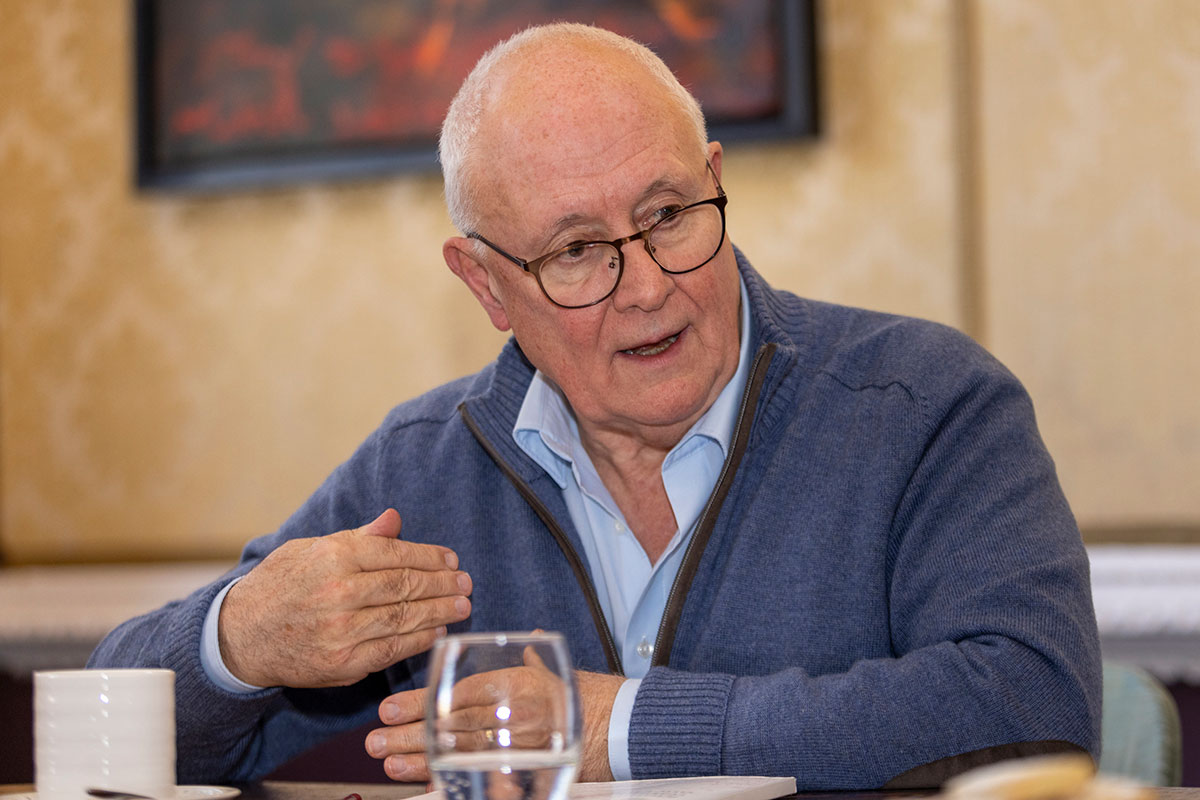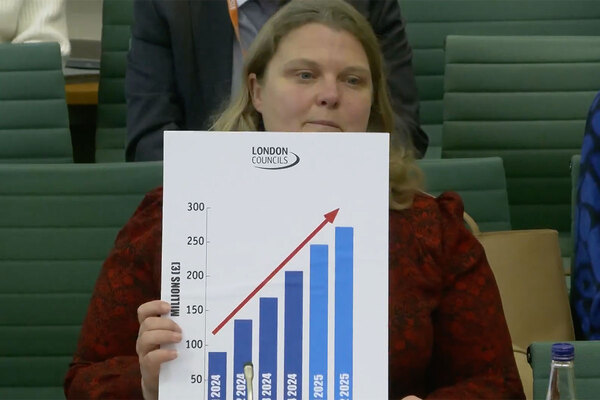How do we judge Gove’s legacy?
Michael Gove may have been the most impactful politician in housing of the past 14 years, but how will we remember him, asks Jules Birch
Following his surprise decision to stand down as MP, Michael Gove leaves Westminster as probably the most important politician for housing in the past 14 years of Conservative rule.
As housing secretary since September 2021 (with a brief break for Liz Truss), he was in charge for some of the most consequential legislation of the whole period: the Building Safety Act 2022; Social Housing (Regulation) Act 2023; and Leasehold and Freehold Reform Act 2024.
He also changed the terms of the debate on many issues, issuing public calls for more social housing in a way that would have been unthinkable for earlier Conservative ministers and speaking up for the rights of leaseholders, renters and tenants.
Yet for all that, he remains something of an enigma. On a personal level, he was an able minister, open about Conservative failures and willing to engage with questions others would dodge, but he also bequeathed us Brexit chaos and never achieved one of the great offices of state.
The sense of two Goves carried on until the end: speaking to Rishi Sunak in the final Cabinet meeting before the election was called, his message was “who dares wins”, but two days later it was “actually, not me” as he stood down from his Surrey Heath constituency.
His time as housing secretary went right to the wire. As I wrote last week, the decision to call the election in July risked killing off two important housing bills.
In the end, the Leasehold and Freehold Reform Act made it through the parliamentary ‘wash-up’ process, but shorn of crucial elements that would have helped existing leaseholders, including on forfeiture and the proposed cap on ground rents.
The Renters (Reform) Bill ran out of time completely, breaking the 2019 manifesto commitment to abolish Section 21.
So how do we judge Gove’s legacy?
Did he over-promise and under-deliver, telling campaigners what they wanted to hear, but ultimately letting them down? Or did he push reform as far as he could?
Did he make significant progress despite opposition from elsewhere in government, from vested interests and from his own backbenchers? Or did he give too much ground to them?
His immediate priority on taking office seemed to be to fix the building safety crisis. He dragooned developers into signing remediation contracts, drove through the Building Safety Act and consulted closely with cladding campaigners.
“Did he over-promise and under-deliver, telling campaigners what they wanted to hear, but ultimately letting them down? Or did he push reform as far as he could?”
But the act was drawn up in a hurry, leaving holes that had to be filled later, and it does not cover more than a million ‘non-qualifying leaseholders’ whose homes and lives are still blighted.
Hours before he resigned, he reportedly told civil servants that housing and planning will be the toughest issues they face in the next parliament and that “there is much more that we need to do” to build new homes.
Yet he was also the man who surrendered to Conservative backbenchers over planning reform and mandatory housing targets, and signalled to Tory councils that a blind eye would be turned if they scrapped local plans to meet housing need.
The result is that the government had long since abandoned one manifesto target of 300,000 new homes a year and only met another of a million homes in this parliament (no more than in the last one) by the skin of its teeth.
Similar appeasement of backbenchers was the cause of the delays to the Renters (Reform) Bill that eventually scuppered it: there were more than four years between Theresa May’s first promise to scrap Section 21 and the bill getting its first reading in May 2023, and another five-month delay while amendments watering it down were negotiated.
Mr Gove could have called the rebels’ bluff at any stage by relying on opposition support. No government wants to do that, of course, but it would have avoided a snub to millions of renters weeks before the election.
Opposition to his plans on leasehold reform came from Downing Street and the Treasury, as well as some backbenchers and Tory peers.
The 2019 manifesto had promised to ban the sale of all new build homes and reduce ground rents to a peppercorn. Mr Gove raised expectations by telling the Commons in June 2022: “It is absolutely right that we end the absurd, feudal system of leasehold, which restricts people’s rights in a way that is indefensible in the 21st century.”
However, the bill as passed only bans the sale of new leasehold houses and leaves the 99 per cent of sales that are new build flats untouched. That, plus action on ground rents and the wider adoption of commonhold, will also be left to the new government.
Mr Gove did act on social housing. He drove through the Social Housing (Regulation) Act to beef up the regulator with new consumer standards to hold landlords to account.
He named and shamed councils and housing associations whose performance the ombudsman has found wanting.
And, following the death of Awaab Ishak, he was quick to promise ‘Awaab’s Law’ to set strict timescales for hazards in the home to be investigated and fixed, and allow tenants to take legal action for breach of contract against failing landlords.
“His long-term plan for housing may not remotely justify its billing, but he probably pushed things as far as he could within the constraints of a Conservative government”
But even here there are caveats: it’s not certain that the statutory instrument implementing those changes was actually laid before parliament was prorogued.
And for all his rhetoric about landlords, the legislation on regulation cleans up the mess made by his Conservative predecessors in 2011 when they abolished the standalone Tenant Services Authority and downgraded consumer standards.
One way to look at the period since 2010 is to split it into two halves: in terms of overall politics, before and after the Brexit vote; and in terms of housing, before and after the Grenfell Tower fire.
At his best, Mr Gove drove through reforms that would have been unthinkable in the first half of Tory rule when prime ministers and chancellors were cutting all funding for social rent, talking in terms of “sink estates” and focusing on “building a home-owning Britain” at the expense of everything else.
His long-term plan for housing may not remotely justify its billing, but he probably pushed things as far as he could within the constraints of a Conservative government.
Perhaps inadvertently, he revealed what those constraints are. It would not be a complete surprise to see the party returning to its comfort zone in its manifesto and after the election.
Mr Gove has rewritten much of the story of the past 14 years, but he has not erased it.
Jules Birch, columnist, Inside Housing
Sign up for our daily newsletter
Already have an account? Click here to manage your newsletters













